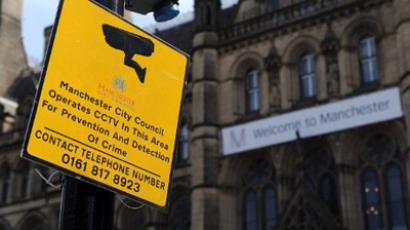Big Brother UK: 8 million children recorded on massive secret database

A newly uncovered clandestine computer network, known as the ‘One System,’ can reportedly share children’s personal details across different UK agencies, including age, sex, address and their school behavior records – all without parents ever knowing.
One of Britain’s biggest government contractors has created a database containing the personal details of 8 million children, the Sunday Times revealed.The database was created by Capita – a company specializing in IT systems – and includes information on a child’s sex, age, exam results, if they have special needs, bad behavior like absenteeism and how many minutes late they are to lessons.This information can then be shared with numerous agencies, including the police, the NHS and child protection units and charities, all without parental consent. Teachers collect data on all children, not just ones deemed to be at risk. This includes recording how many minutes late they are for class. “While information is absolutely essential to protect children, you need to collect information about children who are at risk and not every child,” Nick Pickles from privacy advocate group Big Brother Watch told RT.The One System is already employed by about 100 local authorities, and was created two years after Contact Point – a similar database which was set up by the then-Labour government, but scrapped by the current coalition because of security concerns. Documents obtained by the Sunday Times revealed that classroom information is gathered by teachers and submitted to the One System up to six times a day to provide a “golden thread of data” that can be accessed by anyone working with children. In an Orwellian twist, the firm hires photographers to take pictures of schoolchildren, which they then offer for sale to their parents before uploading them onto the database.“The only reason they’ve designed this is about profit, it’s not about keeping children safe,” Pickles said. Capita has been providing school management databases for local councils, called ‘Sims,’ for several years. Those councils can now upload data from Sims onto the One Database. The records, if required, could be integrated into a larger centralized database.In Swindon, a large town in southern England, records on 48,000 pupils are stored on the Capita One database and have been shared with health officials at local NHS hospitals, and with teams that work with young offenders.Capita children’s services, which designed the system, told the Sunday Times that it could be used to identify vulnerable children who may need support from social workers. Pickles disagrees: “Child protection can not be delegated to an algorithm without local or individual knowledge of that child. Databases and computers remove human judgment.”Pickles argued that one of the main problems with the One System is that it’s not a centralized government system, and is therefore inconsistent across schools. This compartmentalization also makes it harder to share information effectively and quickly. In the past, children were not necessarily endangered by a lack of information, but by professionals whose job it is to protect them not sharing information that already exists. This is allegedly what happened in the 2002 Soham murders, where 13-year-old Jessica Chapman and Holly Wells were killed by Ian Huntley, their school’s caretaker. Pickles also expressed concern that data, once on a database, “may be lost, stolen or misused.”














